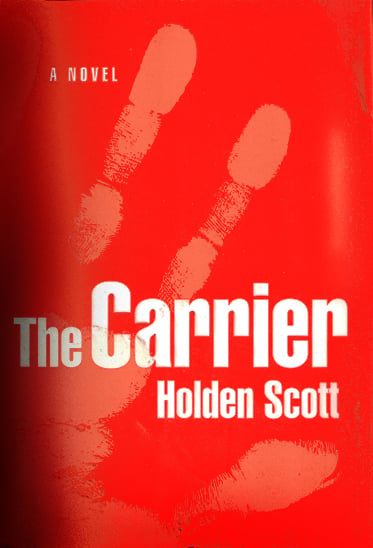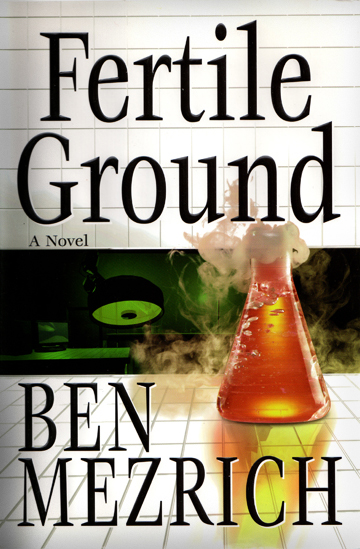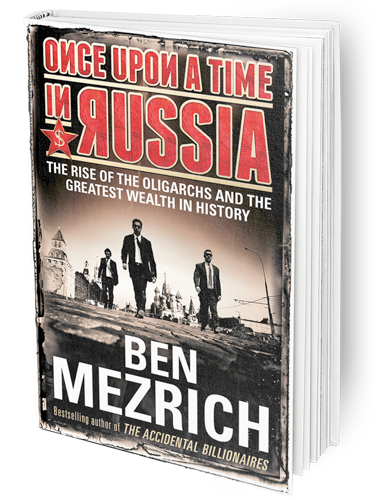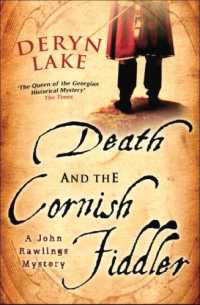I was so taken with the book I just finished by Darynda Jones, the Dirt on Ninth Grave, that I ordered this first book in the series, which I devoured in 3 days. Again, a little too much bodice ripping for an unreserved rave, but still such fun characters and outrageous premise (supernatural), that I will undoubtedly read the whole series. Charley Davidson is a PI in Albuquerque, NM, who works as a consultant to the Albuquerque, PD. She has special skills that help her detective Uncle Bob (and previously her father when he was a cop) solve the unsolvable crimes. She is the Grim Reaper, but not in a bad way. She is a shining beacon to those who have died but not passed beyond because they have unresolved issues--like being murdered. They come to her to pass along messages to their loved ones, to get justice, and eventually, to use her as a portal to "the light." She first saw The Big Bad--what we stereotypically think of as the Grim Reaper (tall, dark, hooded, no face visible, carrying a big scythe) on the day she was born, and she has been able to interact with dead people ever since. Her mother died giving birth, but told Charley in her passing that she was happy to give up her life for Charley's. Her dad eventually came to believe in Charley's special abilities, but her step-mother never did, and made her life a misery as a result. We get all the background on Charley as she reluctantly reveals herself to best friend, employee, and neighbor, Cookie. Both Cookie and Charley are addicted to coffee and hot men. Charley is a smart ass and I always find that appealing in a female protagonist. She is being stalked by someone tall, dark, and not always visible, who visits her in her dreams. She is beginning to think it is a man she met in high school, Reyes Farrow, but it turns out he's in a coma in a prison hospital. Apparently he has some special skills as well. You will love Charley's cast of deceased hangers on: Mr. Wong who stands in the corner of her living room with his face turned to the wall, her Great Aunt 'Lil who always makes coffee but not really, and 13 year old gang-banger Angel, who is Charley's one and only investigator.
Keeping track of what I read by jotting down my reactions, providing information about the author, and linking to additional reviews. And occasional notes on other book related things...
Monday, June 27, 2016
Death Sits Down to Dinner
This is the 2nd in the "Lady Montfort" series by Tessa Arlen, set in pre-WWI London and England. Compared by reviewers to Downton Abbey with a bit of murder mystery thrown in. Definitely provides the "upstairs-downstairs" perspectives of class-based society at that time. Lady Montfort and her husband are invited to a dinner in honor of Winston Churchill's birthday, even though they personally do not like the man. At the story's point in time, he is First Lord of the Admiralty and very verbose about England's need to prepare for a potential war with Germany. The hostess, Lady Hermione Kingsley, is founder of the largest charity for orphans in England, the Chimney Sweep Boys. The board chairman, remains alone in the dining room after dinner in response to a note passed to him by one of Lady Kingsley's footmen. He never leaves the table, having ended up with a knife in his chest. Lady Montfort and her most proper but nevertheless intrepid housekeeper, Mrs. Jackson, are determined to find the killer, even though the government, and certainly Lady Kingsley, want to hush up the whole affair. There are motives aplenty for murdering the self-important gentleman--thwarted love, financial shenanigans at the charity--but this is a big red herring. I won't spoil it, but you will be surprised by "who done it" and why. Enjoyable read for those who like mysteries with a historical setting, involving actual historical persons, in this case including: Winston Churchill, Lady Cunard (yes that Cunard), Sir Thomas Beecham, opera star Nellie Melba, and dancer/choreographer Vaslav Nijinsky.
Wednesday, June 22, 2016
The Dirt on Ninth Grave
A numbered series by Darynda Jones, which I will now need to go back and read, starting with First Grave on the Right. The series is based on the character, Charley Davidson, who is a part-time sleuth who can see dead people and parallel worlds. However, you would not know about Charley if you started with this book because Charley woke up in an alley behind a diner several weeks ago with no memory of who she is and now goes by the name Jane Doerr. She is waiting tables part-time in the diner and her fellow waitress is Cookie, who keeps calling her Charley for some inexplicable reason. Also there are a bunch of diner "regulars" who seem to have taken a special interest in her, including the hot body Reyes Farrow, who is the target of all the local female lust in the town of Sleepy Hollow (yes, THAT Sleepy Hollow). Because "Janey" can see other worlds, she knows that Reyes is not altogether human--she sees an aura of flames and smoke around him, Also, she can see a demon sleeping curled inside one of her favorite customers, Mr. P., who is usually accompanied by the ghost of a dead stripper. Mr. P. doesn't know about all the company he keeps of course, so Janey is worried about him. Then she has more things to worry about when she begins to suspect that the owner of the antique store next door, Mr. Vandenberg, and his family have been taken hostage by terrorists. But how to get help for them without endangering them further? And then there is the local police officer, Ian, who thinks Janey is his girlfriend, even though she has not encouraged him. As the book goes on, it emerges he is stalking her in a major and scary way. So Janey has friends and enemies--living and dead--and she is afraid to tell anyone what she can see that nobody else can. This was a real romp, and although I don't have much patience for the bodice ripper style of description that pops up periodically, Janey is an enjoyable character, and I found myself as anxious as she was to find out who--and what--she really is.
Truth
This is a very gritty police procedural set in Melbourne, Australia by Peter Temple, as a sequel to the award winning The Broken Shore. This book also took several literary prizes. There are obviously some references to the earlier work, but it can be read as a stand-alone. The protagonist, Inspector Stephen Villani, is head of Melbourne's Homicide Division, but nevertheless refuses to take a hands-off managerial role. Instead he gets down and rolls around in every investigation which causes him to be a bit more invested in finding solutions, even when political powers-that-be encourage him to let things go. There are several grisly, and seemingly unrelated murders--a prostitute, a couple of drug dealers--that everyone seems to want tucked away as soon as possible. Preferably without involving several high level government officials and prominent business men. There are a couple of side stories going on as well. Villani's marriage has already deteriorated into a coldly hostile detente situation when his youngest daughter, who he is sure is not actually his child, goes missing in the company of a drug dealer. Meanwhile, his father's home and surrounding acreage, planted in hundreds of trees by Villani when he was a youth, is in the path of a raging fire and his dad won't leave. Villani is being unwillingly groomed for a higher position, getting advice from several directions including the police hierarchy and local politicians. Villani is ready to walk away from it all because he has become so cynical and discouraged about the crime and depravity of the city. This probably NOT a book you want to read if you are thinking of visiting Melbourne anytime soon. Well-written but very dark, a la the Scandinavian crime fiction I blogged about earlier.
Temple has also written the "Jack Irish" series, which was made into a TV mini-series. I could not find an author home page, but the Wikipedia entry has a list of awards and novels written. A review from The Guardian is here, and a slightly more enthusiastic endorsement from The Huffington Post.
Temple has also written the "Jack Irish" series, which was made into a TV mini-series. I could not find an author home page, but the Wikipedia entry has a list of awards and novels written. A review from The Guardian is here, and a slightly more enthusiastic endorsement from The Huffington Post.
Wednesday, June 15, 2016
Cracked Spine
This Scottish Bookshop Mystery (hopefully the first in a series) by Paige Shelton was just a delightful read if you like cozies. Not that Edinburgh really qualifies as the small town that is usually the setting for such mysteries, but the sense of community and knowing everyone else's business is here is good measure. Budget cuts have unexpectedly ended Delaney Nichols' job as an archivist at a museum in Wichita, Kansas, when she sees an ad for "a keenly intelligent investigator to assist us in our search for things thought lost" at a rare book and manuscript shop in Scotland. After an hour-long conversation with the owner, Edwin, MacAlister, who is impressed with her experience working in preservation of historical objects, she is offered the job and never looks back.
The shop, known as The Cracked Spine, is in the heart of old Edinburgh and Delaney is delighted to find "Delaney's: The World's Smallest Pub" just a few doors away. She is taken under the wing of a friendly cab driver and his wife who just happen to have a small cottage to rent. Delaney's fellow employees at the shop are 19-year old Hamlet, a college student who also acts in local theatre, and Rosie, an older woman who is constantly accompanied by her small dog, Hector. Before Delaney even has time to figure out what her job will be, the situation is shattered by the murder of Edwin's sister, Jenny, who was also holding a valuable Shakespeare folio for him. Delaney is not content to stand by while the police solve the mystery, and her inquisitiveness might just get her killed....well of course it doesn't. There is also a love interest in the owner of the aforementioned pub, Tom, who has dreamy blue eyes and looks great in a kilt.
You don't get a hint of what's happening until the very end and it was an act of will to put the book down at night. Her use of some Scottish brogue in the language of her characters is entertaining, and her love of Edinburgh and the Scottish people shine through. For those of you who share that fondness, you will find this a wonderful diversion. Shelton has written quite a few books and other series. I really hope she continues this one. Apparently, there is an element of the supernatural in her "Farmers' Market" and "Country Cooking School" series, and there is lots of room for ghosts in Scotland!
The shop, known as The Cracked Spine, is in the heart of old Edinburgh and Delaney is delighted to find "Delaney's: The World's Smallest Pub" just a few doors away. She is taken under the wing of a friendly cab driver and his wife who just happen to have a small cottage to rent. Delaney's fellow employees at the shop are 19-year old Hamlet, a college student who also acts in local theatre, and Rosie, an older woman who is constantly accompanied by her small dog, Hector. Before Delaney even has time to figure out what her job will be, the situation is shattered by the murder of Edwin's sister, Jenny, who was also holding a valuable Shakespeare folio for him. Delaney is not content to stand by while the police solve the mystery, and her inquisitiveness might just get her killed....well of course it doesn't. There is also a love interest in the owner of the aforementioned pub, Tom, who has dreamy blue eyes and looks great in a kilt.
You don't get a hint of what's happening until the very end and it was an act of will to put the book down at night. Her use of some Scottish brogue in the language of her characters is entertaining, and her love of Edinburgh and the Scottish people shine through. For those of you who share that fondness, you will find this a wonderful diversion. Shelton has written quite a few books and other series. I really hope she continues this one. Apparently, there is an element of the supernatural in her "Farmers' Market" and "Country Cooking School" series, and there is lots of room for ghosts in Scotland!
Thursday, June 9, 2016
The Carrier
Like the other medical/scientific mystery I just blogged about, Fertile Ground, this book by Ben Mezrich is a little tighter and more readable than previous books I have read by him. Our protagonist, Jack Collier, is a PhD student at Harvard on a personal quest to find a cure for cancer, and thus save his girlfriend who is dying. When he apparently succeeds by altering a flesh-eating bacteria to target cancer cells, he is elated. Then his world turns upside down as he is betrayed by his advisor and mentor who has framed Jack for plagiarism and made it appear that Jack's research is his own. Jack steals his samples from the lab and takes off in search of his girlfriend, unaware that the bacteria was altered by his advisor and is now a terrifying plague that Jack can transfer to people just by touching them. The FBI is after Jack. One agent wants to kill him, the other wants to understand what is going on with this terrible germ and with the man who created it. If you like Robin Cook mysteries, this one will appeal to you.
Fertile Ground
This book brings together what are initially unrelated events in Boston: a dramatically increased rate of infertility among men, a series of fatally hemorrhagic young victims to the hospital ER, an explosion in a fertility lab, and a mutilation and murder of a resident in the same ER. Our protagonists are a fertility researcher, Jake Foster, who is married to ER doctor, Brett Foster. Both have stumbled upon a new protein that, when downloaded into the GenBank database, show a strange video of a chimp choosing random objects all marked with the letter G. Moreover, right before their deaths, Jake's lab assistant who died in the explosion, and Brett's resident who was murdered, accessed this web site. Apparently someone is trying to reveal something and someone else is trying to make sure that secret stays hidden.
This all revolves around a corporation that is working on a synthetic pheromone to make people buy their products. The end of free will is only the most obvious of the problems with this being implemented. Because the company also knows there are serious side effects of this compound that the company considers acceptable costs, reasoning along the lines of tobacco companies who kept selling their product even when they knew cigarettes caused cancer. Jake and Brett need to be silenced before they blow the upcoming corporate buy-out, and they turn to the only person they think can help them stop this murderous campaign, the state's attorney general. But he really wants to eventually run for president, and...well you know what's coming.
Thursday, June 2, 2016
Bats of the Republic
I admit to not finishing this "illuminated novel" by Zachary Thomas Dodson. It is exquisitely staged and composed--by that I mean it has combined multiple forms for presenting information--letters, maps, drawings, "transcripts," excerpted pages from other books--to tell a complex tale spanning three hundred years, from the 1880's to a futuristic America that has collapsed as an entity. Normally, I like this sort of story, and the settings are well-drawn, but I found the characters less than compelling and the story just too fragmented to make it worth the work required. Too bad, as this was written by an acquaintance of a long-time friend. A similar assessment is provided by Kirkus; however, the reviewer from the Washington Post was "transfixed" by the craft and by the parallel tales.
Once Upon a Time in Russia
I just recently read and blogged about another book by Ben Mezrich, Seven Wonders, so have a look there to get more background. I had decided to try one of his "non-fiction" works since they have been so popular. This is the story of Russia's rocky transition from communism to capitalism, when state owned businesses were auctioned off to the highest bidder. Boris Berezovsky was one of a group of men who rose, often from poor backgrounds, to incredible wealth in the process and became known as The Oligarchs. Berezovsky went from co-owning Lada (cars) to buying the national broadcasting system and eventually used it to keep Yeltsin in office. He had such strong connections to the Kremlin that he was virtually untouchable. When Yeltsin's health continued to fail, however, Berezovsky worked with other Oligarchs to elect a previously little know ex-KGB agent to the office, thinking to avoid the persistent threat of a return to communism, and to put in place a malleable man. But somewhere the calculations went wrong. Putin changed colors and became an obstacle rather than the expected collaborator and he went after the Oligarchs when Berezovsky attacked him in the press. Eventually, Berezovsky was driven from Russia into exile, first in France then in England. Roman Abramovich, who came to own the state oil and aluminum companies under Berezovsky's protection, somehow managed to keep his head down and stay in Russia, eventually paying Berezovsky over a billion dollars to dissociate himself from Abramovich. Litvenenko, a close associate of Berezovsky's and former FSB official who blew the whistle on corruption in the FSB, had previously fled to England, after serving a term in prison under Putin's orders. He was infamously murdered by polonium poisoning, perhaps also to be laid at Putin's door. Berezovsky eventually killed himself when he realized he could not go home and was no longer the significant king-maker, mover and shaker that he had once been.
Fascinating story that certainly has a factual basis, although Mezrich seems to create a lot out of thin air. I find Mr. Mezrich's writing style not to my taste as it is hyperbolic and somewhat sloppy, but I suppose that sort of rabid prose appeals to a lot of readers. Nevertheless, I learned something about this period and the players in recent Russian history (mid-1990's to 2013) and so it was worth it to me to read this book. Straightforward review here from Kirkus; The Boston Globe also takes issue with Mezrich's writing style as does The Chicago Tribune (which also has a picture, I think, of Berezovsky if you are interested).
Fascinating story that certainly has a factual basis, although Mezrich seems to create a lot out of thin air. I find Mr. Mezrich's writing style not to my taste as it is hyperbolic and somewhat sloppy, but I suppose that sort of rabid prose appeals to a lot of readers. Nevertheless, I learned something about this period and the players in recent Russian history (mid-1990's to 2013) and so it was worth it to me to read this book. Straightforward review here from Kirkus; The Boston Globe also takes issue with Mezrich's writing style as does The Chicago Tribune (which also has a picture, I think, of Berezovsky if you are interested).
Death and the Cornish Fiddler
One of my weak moments when I ordered some irresistible sounding titles from Daedalus....this one included. This series by Deryn Lake--the prolific author of several series of mostly historical novels-- is fifth in the "John Rawlings" series. Rawlings is a London-based apothecary in 18th C England who helps solve murders as a sort of enjoyable sideline, after earlier having been falsely accused of a murder and finding the real killer in self-defense. He is based on an actual person according to the author's notes. In this book, his wife Emilia has been dead about 18 months and he is the sole parent for his 5-year-old daughter, Rose. He is falling in love with a widowed Marchesa, Elizabeth, who is uninterested in ever being married again. They have traveled from her estate in Devon to a small town in Cornwall to watch the dance festivities associated with the coming of spring, known as the Furry or Floral Dance. While there, another young girl, Isolde, disappears and then a beautiful courtesan is found murdered. John is on the case and eventually Elizabeth and Rose grow tired of his pursuit of murderers and retreat to Devon--for a while. John and the lover of Isolde's widowed mother continue the investigation and uncover a coven of witches. When Rose is abducted, the hunt for the abductors/ killers of Isolde becomes very personal. All the mysteries are solved and Rose is restored to her father, so all comes well in the end. The author has done her homework (obvious when you look through her website) and so the settings are authentic, the events realistically portrayed and the characters are sufficiently complex--neither all good nor all bad. For those who love historical mysteries, especially English settings, this will be a satisfying read and I would happily consume another in this series. I am still somewhat partial to the Owen Archer series (also involving an apothecary) written by Candace Robb, although these are set in the 14th C., or those of Sharon Kay Penman, but these Rawlings tales are a fine addition to the tradition.
Subscribe to:
Posts (Atom)









